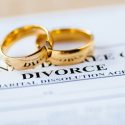Suing for Failure to Diagnose? Here’s What You Need to Know
A doctor’s failure to diagnose a condition can have serious health consequences. Sometimes, it may even lead to death. You have a legal option to sue for failure to diagnose to recover compensation for damages.
Medical malpractice is an unfortunately common and serious problem. Hospitals in Chicago have paid millions in the last few years in medical malpractice suits. Victims often turned to Chicago wrong diagnosis attorneys for legal help. Knowing what filing a lawsuit entails is vital for anyone seeking legal action.
Here’s everything you need to know about suing for failure to diagnose.
What You Need to Prove in a Failure to Diagnose Case
To successfully pursue a failure to diagnose a case, you must prove four elements. They include:
The Existence of a Duty of Care
You must show that the healthcare provider had a duty of care towards you. The existence of a doctor-patient relationship can prove a duty of care.
Breach of Duty
You must show that the doctor breached their duty of care. That means showing that the doctor failed to provide you with the expected standard of care.
Causation
You must also prove that the doctor’s breach of duty caused your condition to worsen. If the failure to diagnose leads to death, the victim’s loved one may sue. The plaintiff in such a case must show that the breach of duty caused the death.
Damages
Plaintiffs must show that they suffered damages due to the failure to diagnose. Damages include medical expenses, pain and suffering, loss of income, and more.
Evidence in a Failure to Diagnose Lawsuit
You must provide sufficient evidence to prove the medical professional’s negligence. Some of the evidence that can help in a failure to diagnose case includes:
Medical Records
Medical records may include the following:
- Medical tests
- Doctor’s notes
- Any other information that helps to show the doctor’s failure to diagnose.
Plaintiffs can also provide evidence of any treatments that the doctor provided. These may help demonstrate the doctor’s negligence in diagnosing the condition.
Expert Testimony
An expert witness is a skilled medical professional. They can provide an opinion on the defendant’s failure to diagnose. Experts may also provide insight into the consequences of the failure to diagnose.
Recoverable Damages in a Failure to Diagnose Lawsuit
You may recover two kinds of damages in a failure to diagnose suit. Here’s a closer look at them:
Economic Damages
You may get compensation for your medical bills. It covers the cost of any additional treatments, tests, or medications that you need.
You may have to miss work due to your condition. In some cases, you might even be completely unable to return to work. Thus, you can claim lost income or lost earning capacity.
Non-Economic Damages
Non-economic damages are more subjective. They include:
- Pain and suffering
- Emotional distress
- Reduced quality of life
Obtaining Compensation Through a Settlement or Verdict
As you file a case for failure to diagnose, you can present the amount you want in compensation. However, it isn’t guaranteed that you’ll receive that amount. You may negotiate with the other party and settle on a different amount. Many medical negligence cases settle out of court.
At times, however, you may have to take the case to court. The court will reach a verdict on liability and the compensation amount.
Statute of Limitations When Suing for Failure to Diagnose
A statute of limitations is a law that outlines the time you have to file a lawsuit. The deadline typically begins when the injury occurs and varies based on the state. In some cases, exceptions may apply to the statute of limitations, for example, in cases involving minors.
The court may dismiss the case if you don’t file a lawsuit within the allotted time. That might jeopardize your ability to recover compensation.
Wrapping Up
Suing for failure to diagnose can be a daunting process. Thus, it’s crucial to understand what it entails fully. Doing so will help you get ready for what is to come.



